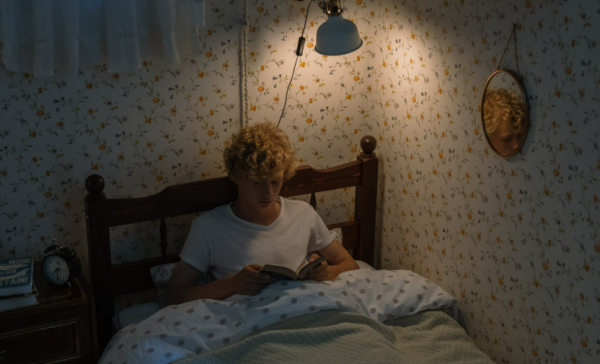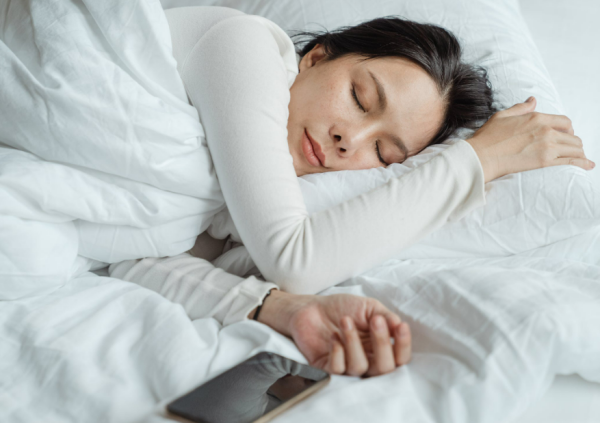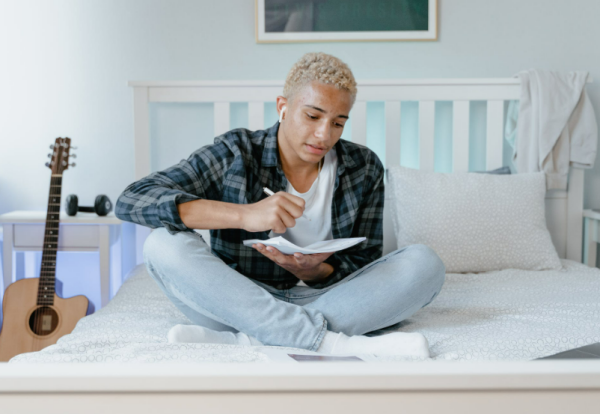
7 ways to ensure your teenager gets enough sleep
Trying to get our teenagers to go to sleep at an appropriate time is not an easy task. Whether they’re up late on their phones, doing last-minute homework for school the next day or gaming with friends online, making sure your teen is getting enough sleep can be very difficult.
Whether they’re in a ‘rebellious stage’ and don’t want to listen to you or are genuinely struggling with time-keeping, we must ensure as parents that they are not lacking sleep as this can affect their daily lives and have a negative impact on their schoolwork.
Studies have proven that teenagers need at least eight hours of sleep, but 10 hours is optimum. If you’re at the end of your tether and don’t know what else to do to convince them that you’re trying to help them by getting them to sleep more, have a look at our list of top tips below.

Adjust bedtime slowly
Don’t start off by demanding they go straight to sleep at 9pm if they had previously been heading to bed at 11pm. Instead, gradually remind them when they should be going to bed and bit by bit make the time earlier. We can’t expect them to be out like a light at 8pm but even just telling them to go to bed 10 minutes earlier to start with can be beneficial.
Nap less
We all like a good nap after a busy day of work, and so do our teens. If your teen does like to have a nap after school or accidentally falls asleep early in the evening, try not to let the nap go beyond 20 minutes. Anything much longer than this can have an impact on how tired they feel at night time, making them feel much more awake than they should.
No electronics
Smartphones and tablets have become attached to most people these days and for some children they can seem like an addiction. Don’t let your teen head to bed while they are glued to their phone. We all know how quickly time can get away from us after endless scrolling and before we know it, it’s 1am! Teenagers are the same so allowing them some time on their phone before bed but ensuring they don’t bring it to sleep with them is a great habit to get into.

Create a good sleeping environment
Teenagers rooms can get very messy. Looking at piles of clothes, books and empty glasses can be overwhelming and is not a good environment to try and sleep in. Make sure your teen doesn’t have a busy-looking space when they are trying to catch some Z’s. Give them a hand with organising their room so they have a peaceful place to go to sleep. You can invest in a lavender pillow spray for added calmness before bedtime too.
Cut the caffeine
Some teens enjoy having fizzy drinks, tea, coffee or energy drinks, which will make them feel more awake. But these drinks are packed with caffeine and can affect a child’s alertness by keeping them energised much more than they should. Make sure your teen isn’t consuming too much caffeine at all, but especially not before they are trying to sleep.

Talk it out
Sometimes it can be hard to sleep because our minds are racing or we have worries that we can’t stop going over in our heads. Teens will also be experiencing this, from peer pressure to exam stress, they can easily get overwhelmed. If you think this may be the case with your child, make sure to set time aside to talk to them about any negative feelings they may be having. Often getting something off your chest can help you sleep better at night.
Help with time-keeping
We like to blame phones and social media for the main reason our teens won’t go to sleep at a reasonable hour, but sometimes they are just struggling to navigate life as they get more independent with age. Trying to make time for homework, study, dinner, after-school activities and keeping up a social life can be hard for a teenager. Help them by sitting down and roughly timing how long each of their tasks after school take and work out when they should be going to sleep. For example, if they having training at 8pm one evening, ensure they get homework done before they go so they don’t have to try and do it afterwards and eat into time they should be preparing for bed.
